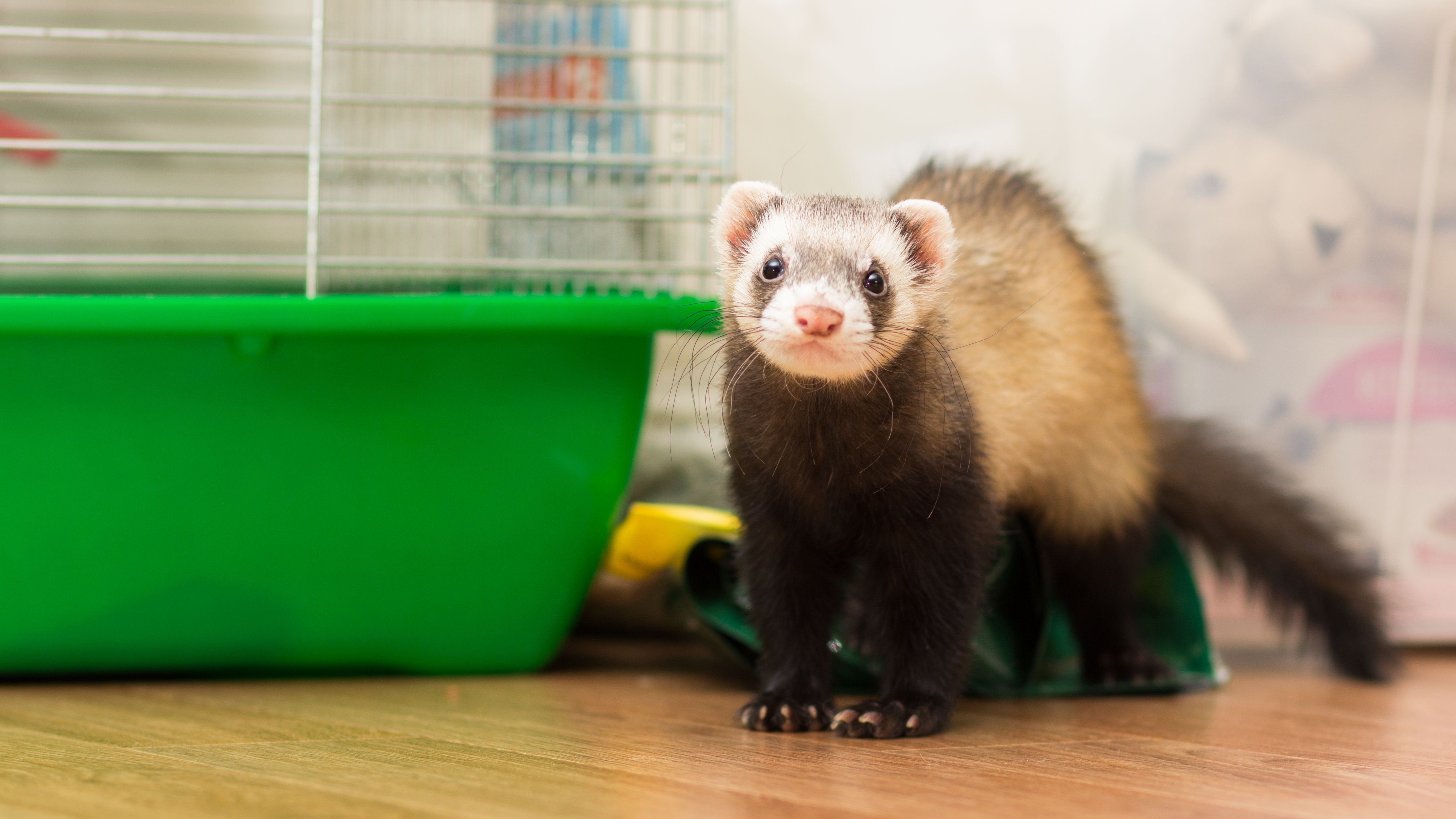
One of the most common questions you may have is, “Why is my ferret not eating?” If the answer isn’t obvious, you may want to start by researching the most common causes of vomiting in ferrets. Vomiting can lead to dehydration and, in severe cases, lead to Calcium oxolate stones. If vomiting isn’t the cause, you can rule out heart disease and diabetes as potential causes.
Contents
Vomiting causes dehydration in ferrets
When a ferret vomits, it loses water through its intestines. This dehydration can be a sign of many medical conditions, including gastrointestinal problems. Some of these problems are triggered by zinc intoxication, which can be caused by feeding your ferret food that is galvanized or by licking the cage bars. Other causes of vomiting in ferrets include foreign bodies, which can be small objects that have lodged in their gastrointestinal tract. Abdominal palpation and radiography are useful in diagnosing foreign bodies. In most cases, foreign objects must be surgically removed.
In the event that a ferret vomits and refuses to drink water, it’s important to seek veterinary help immediately. The body needs adequate water to fight off illnesses and fight off disease. Frequent bouts of diarrhea or vomiting can cause dehydration in ferrets. In these cases, your ferret will need intravenous fluid injections to combat dehydration.
Heart disease
When your ferret isn’t eating, it may be the result of heart disease. Heart failure in ferrets usually involves dilated cardiomyopathy, but heart valve problems are also common. All heart problems in ferrets eventually lead to congestive heart failure. Your veterinarian may prescribe different medications to treat the various symptoms and diagnose the underlying cause. X-rays are necessary for an accurate diagnosis, and the veterinarian can give you a prescription for medication.
The first signs of heart disease in ferrets include decreased appetite and generalized weakness, as well as rear-leg weakness. Some ferrets may also exhibit coughing, purplish gums, and abdominal enlargement caused by fluid accumulation. Heart failure symptoms may be difficult to detect early on, but once they begin to appear, you can start treatment. Often, diuretics are given to your ferret to help reduce fluid in its bloodstream.
Diabetes
You may be asking yourself: why is my ferret not eating? The problem could be that he’s eating a new food or isn’t liking the taste or texture. Your ferret could also be suffering from food poisoning or other illness. Luckily, the good news is that there are plenty of things you can do to solve this problem. Listed below are some ways to make your pet happier and healthier.
First, check the feeding frequency. If you notice that your ferret isn’t eating as often as it used to, it might be time to give it more food. A ferret has a fast metabolism and if they’re not eating enough, it could lead to a number of health problems. If your ferret isn’t eating at all, consider hand feeding it raw soup or adjusting the frequency of feeding.
Calcium oxolate stones
If your ferret has calcium oxolate stones, your vet may recommend surgery. Stones in the urethra, however, may not require surgery and can be treated without the need for surgery. Your veterinarian will determine the type of treatment and prescribe an appropriate diet. Your ferret may require IV fluids to prevent dehydration and rebalance its electrolytes.
Uroliths are deposits of calcium oxalate or struvite in the urinary tract. The minerals in these stones affect the pH of the urine. Uroliths can be caused by several different factors, including diet, urinary pH, and bacterial infections. Your ferret may not be eating as well as it did before. Therefore, it may be important to find a veterinary treatment as soon as possible.
Borrelia burgdorferi causes dehydration in ferrets
Ferrets may show signs of illness such as diarrhea, lethargy, and runny nose. They may also be licking their cage bars or eating from galvanized feeding dishes. If your ferret develops these signs, take it to the vet. Diarrhea can be caused by various conditions including gastrointestinal parasitism or a foreign body in the intestine. You should consult a veterinarian as soon as possible, and give your pet fluids to avoid dehydration.
Treatment for this condition is usually based on a combination of antibiotics and therapeutic agents, which are given at a dosage per kilogram of body weight. Cats can be given antibiotics and therapeutic agents by mouth, but medications for ferrets should be given intravenously. If the ferret is hospitalized, caustic medications should be given subcutaneously. The administration of pills and capsules is difficult for ferrets, so they need to be given in liquid form. Ferrets prefer chicken-flavored products; fish-flavored ones aren’t as well-accepted.

